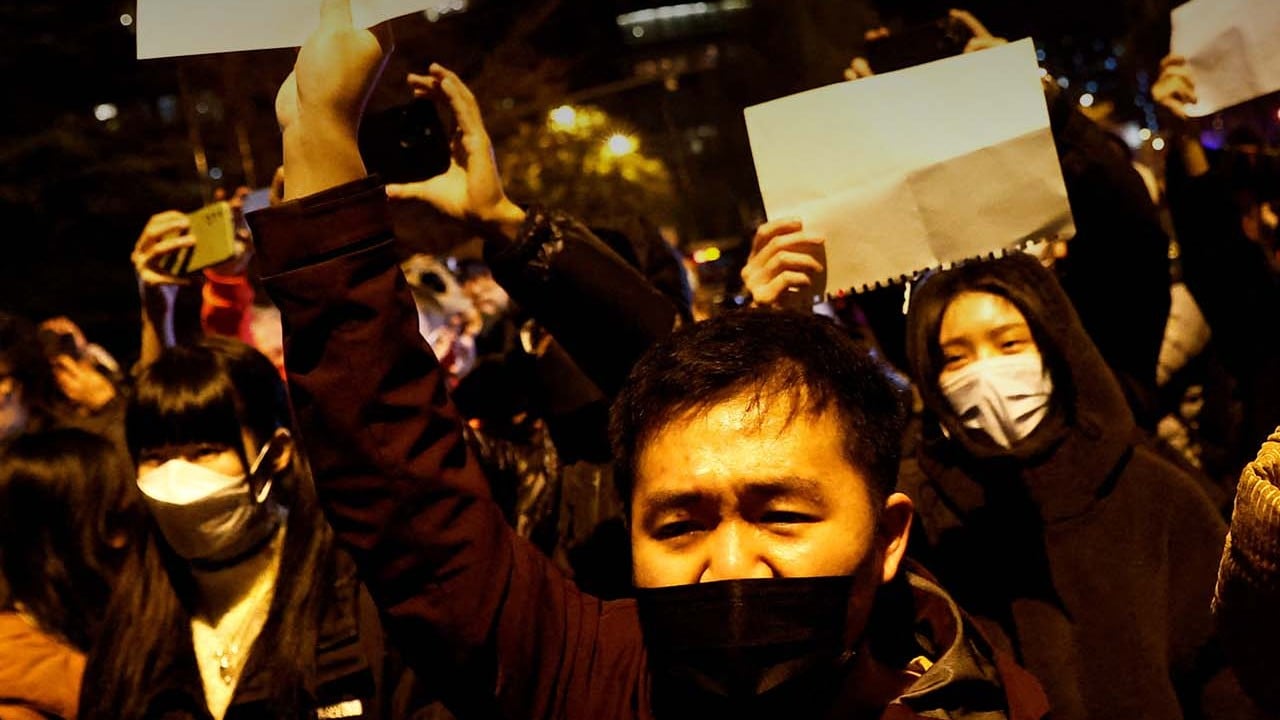
China’s zero-Covid protests: Twitter, Telegram soar in popularity as users circumvent Great Firewall to avoid censorship
- Twitter and Telegram have become two of China’s most popular free iOS apps in recent days, after people staged protests against Covid-19 controls
- Photos and videos of such rallies have been circulating on Twitter and Telegram, while those on WeChat and Weibo have been quickly deleted
Twitter and Telegram, which are blocked in mainland China and only accessible via virtual private networks (VPNs), are among the country’s most downloaded apps in recent days amid widespread protests over pandemic restrictions, according to app market researcher Sensor Tower.
Twitter surged to become the eighth most popular free iOS app in China on Monday, two days after such protests broke out across the country starting with Shanghai, data from Sensor Tower showed. While the app had fallen to the 26th place by Thursday, it still ranked far higher than its previous spot of below 100th.
Meanwhile, messaging app Telegram, which allows for encrypted chat, had jumped to the sixth spot on Sunday in the social networking category, where it remained for four days before dropping slightly to seventh place Thursday.
Photos and videos of such rallies have been circulating on Twitter and Telegram, while those on WeChat and Weibo, two of the most used social networking platforms in China, have been quickly deleted.
“Using Twitter is very easy as long as you have used Weibo,” one user commented on Apple’s App Store in China on Tuesday, comparing the two microblogging platforms.
On Telegram’s App Store page, a user left a comment on Saturday asking for help to learn how to use the app. Another reported glitches on the app on Wednesday and demanded an update.

The Chinese government is trying to crack down on the use of foreign apps. In Beijing and Shanghai, police have been stopping pedestrians near protest sites to check their smartphones for any VPN or foreign apps.
Twitter’s response to content related to the Chinese protests will be a test for its new owner Elon Musk, who has pledged to protect free speech and tackle the platform’s spam problem, but whose electric vehicle company Tesla counts China as a major production hub and consumer market.
On Twitter, at least two users who posted content related to the protests in recent days had seen their accounts suspended, with notices saying they had violated rules against platform manipulation and spam. The accounts were later restored.


